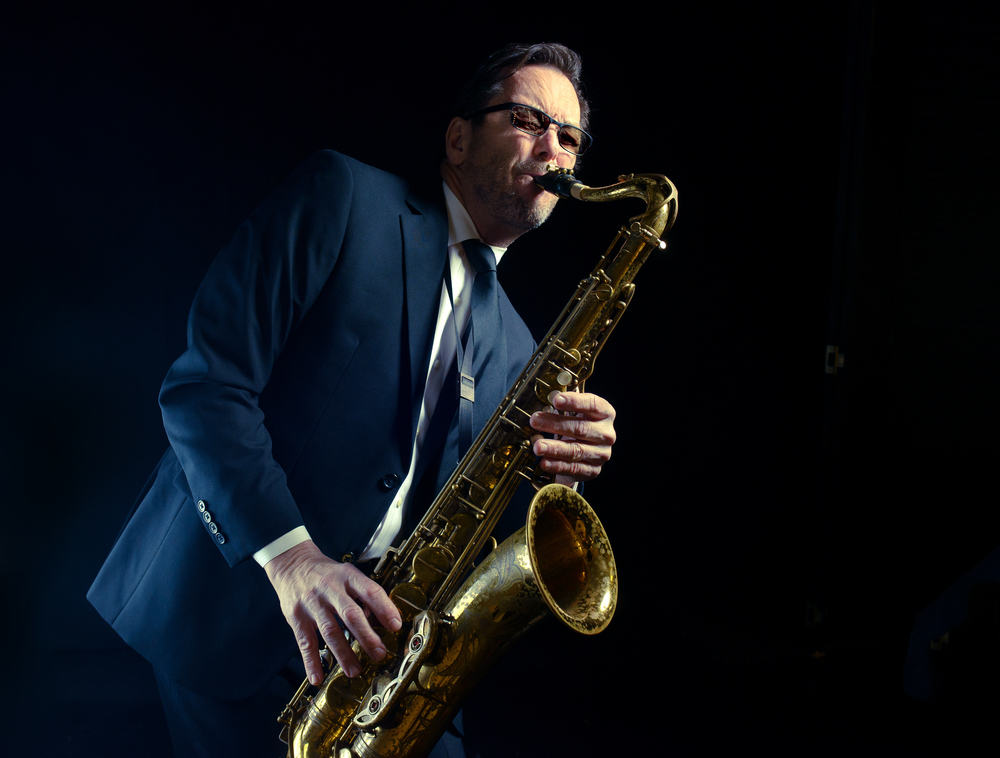Contents:
- Medical Video: How Do Deaf People Experience Music? | AJ+
- Wait a minute, can the Deaf person hear music?
- Understanding human processes translates music in the brain
- Findings about the ability of Deaf people to enjoy music
- Why can a Deaf person adapt like that to the sound of music?
Medical Video: How Do Deaf People Experience Music? | AJ+
For many people, music is a lifestyle. Many work and exercise while enjoying music. Driving while enjoying music, even learning while enjoying music. From music on mobile phones, on computers, to radio, it becomes an encouragement for daily activities. Then, what about people who can't hear? Do deaf people enjoy music like people hear? Come on, see the following review.
Wait a minute, can the Deaf person hear music?
Before discussing further, do you know there are some famous Deaf musicians in the world? Evelyn Glennie is a Scottish Deaf percussionist. Mandey Harvey Deaf singer and songwriter from Colorado. Sean Forbes is a Deaf singer who runs hip-hop music from the United States. Finally, of course you are already familiar with the name of legendary musician and composer Ludwig van Beethoven. How can it be, yes, they capture the sound of music?
Apparently, even though they were unable to hear with their ears, they could feel it. They can feel the presence of rhythmic patterns and signals through vibrations. The vibrations from the music they feel can come from both hands, bones, or other body parts.
Understanding human processes translates music in the brain
All sounds produce wave vibrations. This wave breaks through the air until it can finally be captured by the human ear. The process of hearing begins when the eardrum vibrates to capture the vibrations of sound waves.
The sound vibration is then processed by the nerve nerve to be conveyed to the brain. The brain then translates the signal as sound. That's when you realize that you are hearing sounds or music from your ears.
Auditory cortex or auditory cortex is the part of the brain involved when people listen to music and capture whatever sounds are heard. This is the most important part of recognizing music. When the body meets music, ears (for people to hear) and the body feels the vibrations which are then translated into the brain.
Deaf people do not have the ability to catch sounds like people hear. Sound vibrations cannot be captured by the ears, and the nerves in the ears do not deliver sound signals to the brain. Therefore, the auditory cortex does not receive any signal from the ear.
Interestingly, however, the auditory cortex will also be active when deaf people feel music. The sound signal is sent to the auditory cortex, but the signal does not come from the ear like people hear.
Findings about the ability of Deaf people to enjoy music
Reporting from the WebMD page, Dr. Dean Shibata, found that Deaf people can feel the vibrations of music in the same part of the brain that is used by people who hear. Shibata conducted research at the University of Rochester School of Medicine in New York.
Shibata studied 10 students with hearing loss from birth and compared them with 11 students who heard. Each student is asked to tell researchers when they can detect when the pipe vibrates in their hands. At the same time, it is also done scan brain to capture signals sent to the brain.
Shibata found that when Deaf students feel vibrations, areas in the brain that are usually responsible for receiving musical responses show activities like people hear.
These findings indicate that what Deaf people feel when listening to music is the same as people hear seen from brain activity that occurs.The perception of the vibration of music by Deaf people is likely to be as real as the actual sound, because in the end the brain activity of Deaf and hearing people is just as active when listening to music.
Shibata's findings are also an important warning for surgeons. The reason is, when a surgeon will carry out brain surgery for deaf patients, be careful. Even though it doesn't hear, the part of the brain is still functioning.
Shibata also said that this research shows the importance of familiarizing Deaf children to know music from the beginning of their lives to stimulate the area auditory or the music center in their brain. If this part of the brain has known music from an early age, they can be stimulated and developed.
Why can a Deaf person adapt like that to the sound of music?
The human brain is very adaptable. According to Dr. Shibata, reported at the University of Washington News, his findings show that the brain will always change to adjust conditions.You might suspect that brain function has been programmed from birth and certain areas of the brain can only carry out one function.
Apparently, the genes in the body do not directly dictate the human brain is formed like that. Genes can provide specific development strategies. Genes program all parts of the brain so that they can be used as efficiently as possible, maximally. Even though there is a part of the brain that should not receive a musical sound signal to a Deaf person, the part turns out to be functioning. Deaf people may not capture sound signals to be delivered to the brain, but the brain is able to respond to vibrations felt by the body as rhythms or rhythms.
In the 2014 journal Brain Sciences, it was said that when vibrations from music are felt in the hands or fingers of deaf people, activation of the auditory cortex in the brain is greater and is more common in deaf groups than those who hear. This is one form of adaptation from the body.
When a person experiences a deficiency in one of his senses, the sense responsibility shifts to other organs and the result, other organs also develop abilities above the average.
People who hear and Deaf people do enjoy music in different ways. Listeners have a sensation of music relying on their ears. Meanwhile, Deaf people have a sensation of music relying on the vibrations felt by their bodies.













